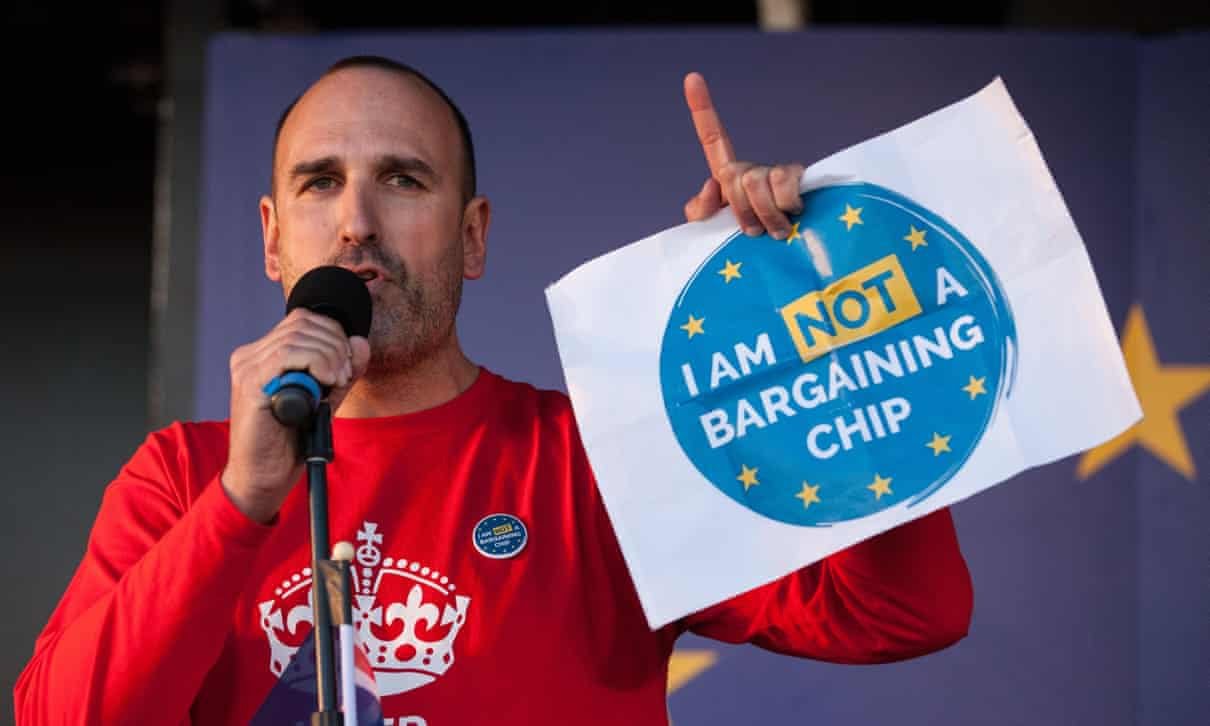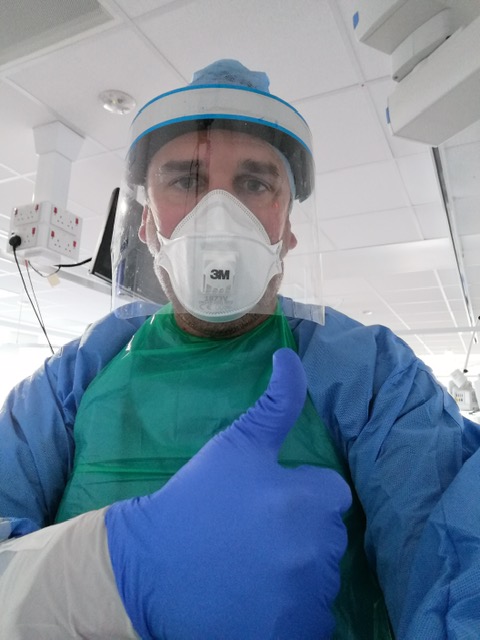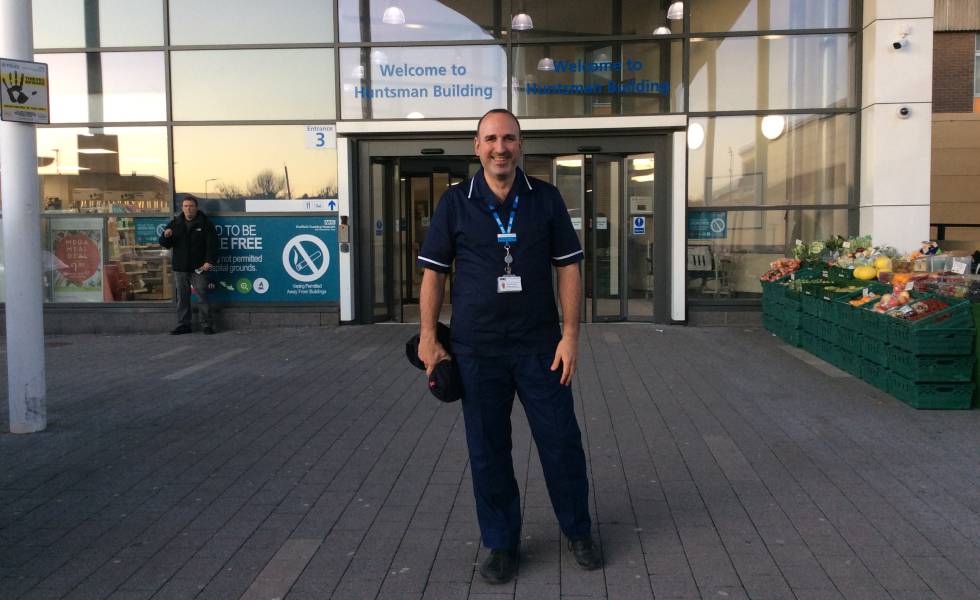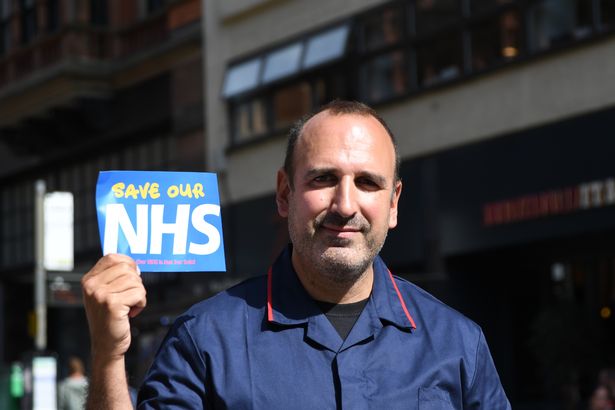Nurse/activist Joan Pons Laplana is originally from Barcelona and has lived in the UK since 2000. He has spearheaded a number of campaigns, including Kissing Goodbye to Sepsis, for which he won the BJN Nurse of the Year award in 2018. Since the Brexit referendum Joan has also campaigned to protect the rights of British citizens in the EU and EU citizens in UK.
Pat Kennedy
Do you think there will be any incentive, after Brexit, for Spanish nurses to go to the UK to work in the NHS?
No. Ending EU citizens’ freedom of movement will kill the NHS. Since 2010 the working conditions here in Great Britain have deteriorated, nurses’ salaries have been frozen while the cost of living has increased 20% during the same period. On the top of that, since the referendum in 2016, the pound is not as strong as it used to be, which means the salaries in other European countries are now more attractive.
Also, the Spanish nursing regulators have indicated that they will no longer recognise UK nursing experience for Spanish nationals post-Brexit. The WHO estimates that the world will need an additional nine million nurses and midwives by 2030. What Boris Johnson and his government don’t seem to realise is that nurses and doctors are highly valued and in high demand in other parts of the world. The lack of staffing is compromising the delivery of safe care and we have a ticking bomb in our hands. Freedom of movement is one of the main reasons why our beloved NHS is still standing on its feet. The end of free movement will probably be the last nail in the coffin. By creating barriers and making it more difficult for foreign nurses to come, it will have a huge impact on the number of nurses choosing to work in the UK. With the current situation, why would a European nurse come to the UK?
Would I have come to Great Britain 20 years ago without freedom of movement, and with the current hostile environment created by Brexit? The answer is no.

Juliet Smith
How do you feel about the governments u-turn on medical care for EU key workers? How did that impact on you personally and your colleagues, and the relationship with his patients?
The government have not done a u-turn yet. Foreign NHS workers and carers are still being charged for using the health service, despite the Prime Minister’s pledge to scrap these fees “as soon as possible”. The date when fees will be scrapped is still not known and guidance has not yet been released by the Department of Health and Social Care. Looking at Mr Johnson’s track record, I do not trust his word at all. If the tax is not scrapped, that will have a significant impact on recruitment and retention as nurses will choose other places to go, increasing staff shortages and making it even more difficult to provide safe care.
How has the clap for carers made EU key workers feel?
I have mixed feelings about the clapping. I would like recognition more than the clapping, I would like something better with laws, we need minimum safe staffing laws that we don’t have in this country and I think it’s dangerous, and we deserve a well-earned pay rise. Despite nurses being given a pay rise by Health Secretary Matt Hancock last year, inflation and austerity meant in real terms there has not been much of a change.
What advice would you give nursing staff and other key workers from EU countries about coming and living in the UK, post Brexit and Corona?
Unless the government change their rhetoric and make Britain more welcoming, I would not advise anyone from the EU to come and live in the UK. Simple as that.
Caroline Guerrero
Have you experienced any animosity towards you at work and do you think people’s opinions of foreigners working in the NHS has changed since the Covid-19 crisis?
Brexit has turned our lives upside down. Things did not happen overnight; instead, little by little, I have seen attitudes towards migrants change. Tensions had been building up slowly, but Brexit was like the cork being pulled out of the champagne bottle. After nearly two decades, I no longer feel welcome or valued. That hostility has disappeared, now people are not bothered about my accent, they’re just happy to see me and happy that I’m a nurse.

In a way the Covid crisis have brought back the sense of belonging because in the past few years, as a non-British national, I felt a bit ‘not wanted’ from the Government and part of society. In a way, we’ve come back to when I came here years ago. It doesn’t matter where you come from. Even the government have changed their rhetoric. We’ve gone from being low-skilled workers to key workers.
I hope that this change of attitude will carry on after but somehow, I am a bit sceptical. I have no doubt that the current government will return to the hostile environment as soon as they need the votes from the far right.
Tony Isaac
We are already seeing the UK disengaging from the EU in areas like equipment procurement, security cooperation and track and tracing programmes & medical research and EU-wide clinical trials are also likely to be casualties of Brexit. What impact do you think these issues will have for public health in the UK?
We are already seeing the UK disengaging from the EU in areas like equipment procurement, security cooperation and track and tracing programmes, and medical research and EU-wide clinical trials are also likely to be casualties of Brexit.
Britain has always been a world leader in medical research but now Brexit threatens that with EU funding being withdrawn. Warnings of medicines shortages and delays in the supply of vital equipment and medical isotopes used in cancer treatment, and concerns about the NHS workforce crisis being made even worse, are not scaremongering. It’s the grim reality facing our precious NHS.
The Covid crisis has put a big emphasis on the importance of collaboration between countries. Despite that Britain seems to continue driving itself towards self-destruction. The contract-tracing charade is a clear example.

John Bentley
To what extent are you concerned that the UK will adopt a more “free market”, privatised approach to healthcare as a result of the increased trading with the USA post-Brexit & how would any such changes affect NHS workers, patients, and the healthcare system in general?
As Mr Trump said, when you’re dealing in trade everything is on the table including the NHS. The UK is desperate to have a trade deal with the USA and that will come at a price. The US wants prices to be “market-derived” or “competitive” which would likely mean significantly higher than current guidelines.
Drug prices in America have soared since protections were removed in the 1990s. Studies have found that popular medicines are three times more expensive in the US than the UK. For individual drugs the differences can be vast. A trade deal with the US would be the death knell of the NHS and would open the door for an insurance-based healthcare system. As the costs will rise exponentially, it will be impossible for the government to fund the NHS. An estimated 530,000 American families turn to bankruptcy each year because of medical issues and bills.
Access to free healthcare should be a human right. I do not want to live in a society that the first priority when someone becomes ill is to ask for their wallet. At that point I will resign from being a Nurse.
Joan has recently been featured in La Vanguardia, for his involvement in Oxford University’s clinical trials for a Covid-19 vaccine. You can read the full story here.
Next month’s Bremainers Ask feature will be something a little different. It is your opportunity to put questions to our Chair, Sue Wilson. Please email your questions to enquiries@bremaininspain.com or add them to the ‘announcement’ post in the Facebook group. Thanks!






